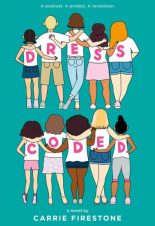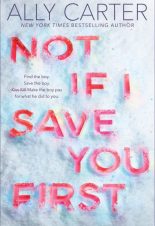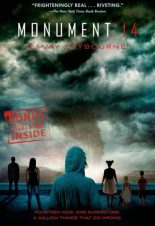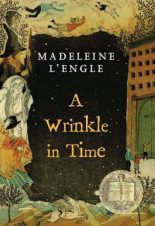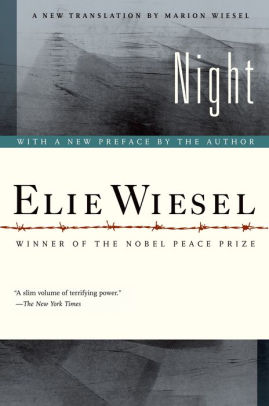
Buy This Book
“You are in Auschwitz. And Auschwitz is not a convalescent home. It is a concentration camp. Here, you must work. If you don’t you will go straight to the chimney,” SS officer. –Night
Night
by Elie Wiesel
AR Test, Must Read
14+
Score
4.8
116
Although news of World War II reaches Elie and his family, they feel safe. They believe the Germans will never make it to their hometown of Sighet, Transylvania. But soon, the SS are in their town, but no one believes the horror stories of torture and death. And then, Elie and his family are taken from their home.
Night is Elie’s personal story, beginning at age 12. Elie, who was a deeply observant Jew, must confront the evil he witnesses while in the Auschwitz and Buchenwald concentration camps. He recalls the terrifying memories of the death of his family, the death of his own innocence, and the death of his beliefs. Elie wants others to understand that the cruelty of the camps and the death of innocents must never happen again.
Night uses powerful imagery that will stay with the reader for years. Unlike the Diary of Anne Frank, Night shows the horrors that took place during World War II. Elie often recalls people’s deaths, and he does not shy away from gruesome descriptions. Even though Elie describes the murder of many people including children, the descriptions are not bloody and do not glorify the events. As Elie describes the events that he experienced, he shows how the SS soldiers as well as ordinary people were cruel.
The real-life testimony in Night gives readers insight into the minds of the Jewish people and to the suffering of those who went to the concentration camp. Although the events are not easy to read about, Night is a must-read because everyone should understand how anti-Semitism played a part in the murder of over six million people. Through Elie’s journey, he chronicles his changing relationship with his God and with his father. He describes how the concentration made people act like animals, who were willing to kill for a crust of bread. The desperation and hopelessness of those in the concentration camp is difficult to read about, however, it sheds light on the conditions of the camps. Elie’s story will help readers understand the importance of standing up for those in need and hopefully prevent another Holocaust from taking place.
Sexual Content
- While being deported in the cattle cars, “some of the young let go of their inhibitions and, under cover of darkness, caressed one another, without any thought of others, alone in the world.”
- While moving prisoners from one camp to another, the guards flirted with some girls. “The girls giggled. They allowed themselves to be kissed, and tickled, bursting with laughter.”
- At the concentration camp, some of the German’s “liked children” and brought them food, but “this affection was not entirely altruistic; there existed here a variable traffic of children among homosexuals.”
- Elie accidentally saw one of the supervisors with a girl who was “half naked, on a straw mat.”
Violence
- Moishe the Beadle is deported. Once in Polish territory, the train is taken over by the Gestapo. The Jews “were forced to dig huge trenches. When they had finished their work, the men from the Gestapo began theirs. Without passion or haste, they shot their prisoners, who were forced to approach the trench one by one and offer their necks. Infants were tossed into the air and used as targets for the machine guns.”
- When the Jews were being deported, “The Hungarian police used their rifle butts, their clubs to indiscriminately strike old men and women, children and cripples.”
- When Elie’s family was being deported, “the police were lashing out with their clubs.” The police also yelled at the Jews, “Move, you lazy good-for-nothings!”
- While being deported in the cattle cars, a woman kept screaming. When she would not be quiet, “the young men bound and gagged her. When they actually struck her, people shouted their approval. . . She received several blows to the head, blows that could have been lethal.”
- When Elie and his family got to Auschwitz, “strange-looking creatures, dressed in striped jackets and black pants, jumped into the wagon. Holding flashlights and sticks, they began to strike at us left and right. . .” As others were getting out of the train car, “an old man fell to the ground. Nearby, an SS man replaced his revolver in its holster.”
- At Auschwitz, Elie saw, “flames, huge flames, were rising from a ditch. Something was being burned there. A truck drew close and unloaded its hold: small children. Babies! Yes, I did see this, with my own eyes. . . children thrown into the flames.”
- While at the concentration camp, men were beaten often. Eliezer sees, “So many crazed men, so much shouting, so much brutality. Dozens of inmates were there to receive us, sticks in hand, striking anywhere, anyone, without reasons.”
- When Eliezer’s father asks for the restroom, a Gypsy, “slapped my father with such force that he fell down and then crawled back to his place on all fours.”
- When Elie and another man crossed paths, “he threw himself on me like a wild beast, beating me in the chest, on my head, throwing me to the ground and picking me up again, crushing me with even more silent blows, until I was covered in blood. . . Abruptly, he calmed down and sent me to work like nothing had happened. . .I was aching all over.”
- A supervisor beat Elie’s father “with an iron bar. At first, my father simply doubled over under the blows, but then he seemed to break in two like an old tree struck by lightning.”
- A supervisor had Elie lie down on a crate. Elie was then lashed with a whip. Elie “no longer felt anything except the lashes of the whip. . . It was over. I had not realized it, but I had fainted.”
- During an air raid, a prisoner sneaks out to try to eat soup from a cauldron. The man, “thrust his head toward the still steaming liquid. We jumped at the sound of the shot. Falling to the ground, his face stained by the soup, the man writhed a few seconds at the base of the cauldron, and then he was still.”
- After a prisoner stole food, he was hung. “The entire camp, block after block, filed past the hanged boy and stared at his extinguished eyes, the tongue hanging from his gaping mouth.”
- Another time, three prisoners including a “little pipel, a sad-eyed angel” were hung. The other prisoners were forced to walk by them. When Elie walked by the dead, “The two men were no longer alive, but the third rope was still moving; the child, too light, was still breathing. And so he remained for more than half an hour, lingering between life and death, writhing before our eyes. . . His tongue was still red, his eyes not yet extinguished.”
- As the SS was evacuating the camp, “From time to time, a shot exploded in the darkness. . . Their fingers on the triggers, they did not deprive themselves of the pleasure. If one of us stopped for a second, a quick shot eliminated the filthy dog.”
- Someone tried to strangle Elie.
- A man’s son kills him for a piece of bread. The son tries to eat the bread, but “two men had been watching him. They jumped him. Others joined in. When they withdrew, there were two dead bodies next to me, the father and son.”
Drugs and Alcohol
- None
Language
- At Auschwitz, someone yells at the inmates, “Sons of bitches, why have you come here?”
Supernatural
- None
Spiritual Content
- Eliezer describes his spiritual relationship with God throughout the book. Not all quotes are included in the review because a main theme through the book is Elie’s changing relationship with God.
- Moishe the Beadle is guiding Elie’s studies of Kabbalah. Moishe the Beadle says, “Man comes closer to God through the questions he asks Him, he liked to say. Therein lies true dialogue. Man asks and God replies. But we don’t understand His replies. We cannot understand them. Because they dwell in the depths of our souls and remain there until we die. The real answers, Eliezer, you will find only within yourself.”
- While being deported, someone said, “Oh God, Master of the Universe, in your infinite compassion, have mercy on us. . .”
- Some evenings, the men would try to sing, and “some of the men spoke of God: His mysterious ways, the sins of the Jewish people, and the redemption to come. . . I was not denying his existence, but I doubted His absolute justice. . .” One of the men said, “God is testing us. He wants to see if we are capable of overcoming our base instincts, of killing the Satan within ourselves. . . And if He punishes us mercilessly, it is a sign that He loves us all that much more.”
- On the eve of Rosh Hashanah, the Jews gathered for prayer, and Elie wonders, “What are You, my God. . . How do you compare to this stricken mass gathered to affirm to You their faith, their anger, their defiance? What does Your grandeur mean, Master of the Universe, in the face of all this cowardice, this decay, and this misery? Why do you go on troubling these poor people’s wounded mind, their ailing bodies?”
- During prayer, Elie wonders why he should bless God’s name. “Why, but why would I bless him. . . Because He caused thousands of children to burn in His mass graves? Because he kept six crematoria working day and night, including Sabbath and the Holy Days? . . . How could I say to Him: Blessed be Though, Almighty, Master of the Universe, who chose us among all nations to be tortured day and night, to watch as our fathers, our mothers, our brothers end up in the furnaces?”
- During a prayer service, Elie thinks, “Man is stronger, greater than God. . .” Since God has not stopped the killing, Elie thinks God has betrayed them by “allowing them to be tortured, slaughtered, gassed, and burned.”
“You are in Auschwitz. And Auschwitz is not a convalescent home. It is a concentration camp. Here, you must work. If you don’t you will go straight to the chimney,” SS officer. –Night
Latest Reviews

Driven

Goodbye Days

Blood of Troy

Will’s Race for Home

Animal Superstars: And More True Stories of Animal Talents

Temple of Secrets

Lifeboat 5

Rock ’n’ Goal

Dogku

